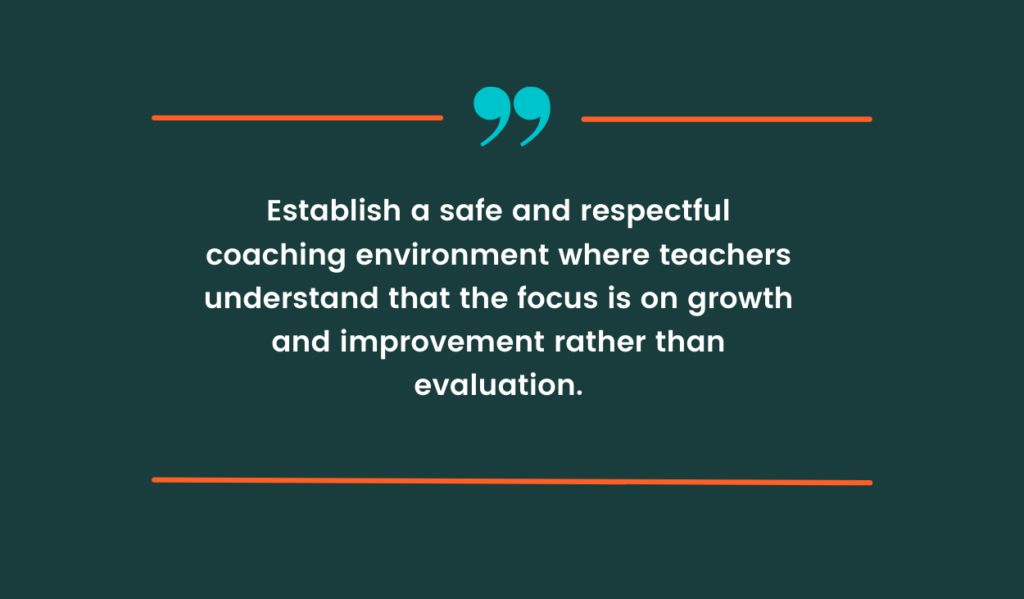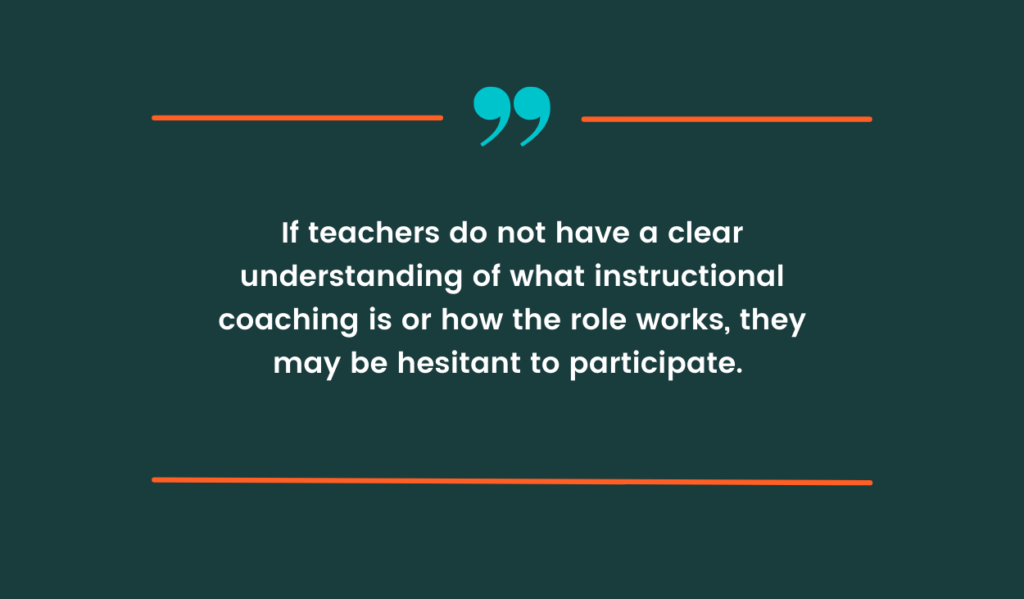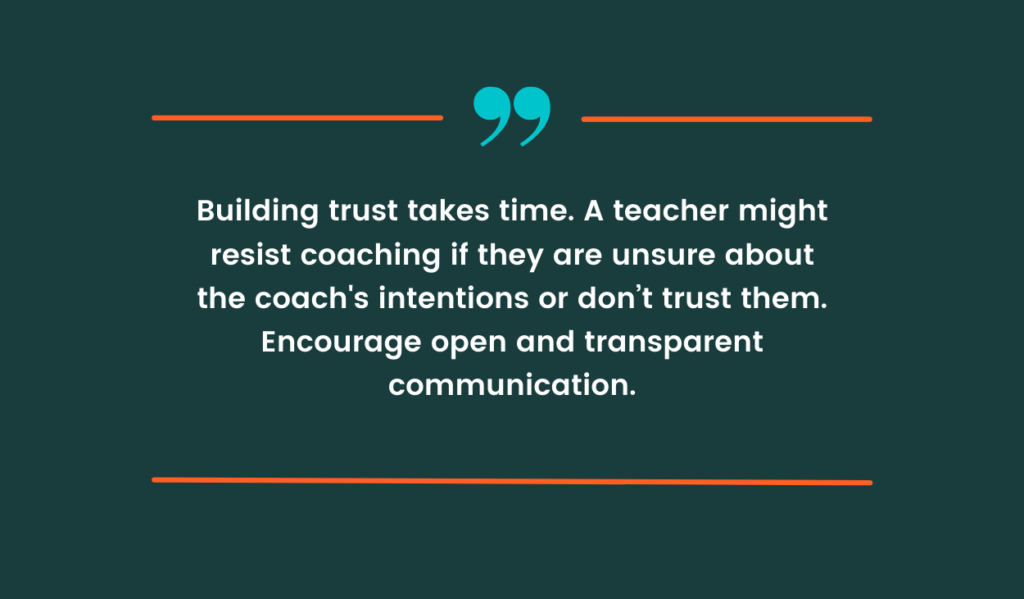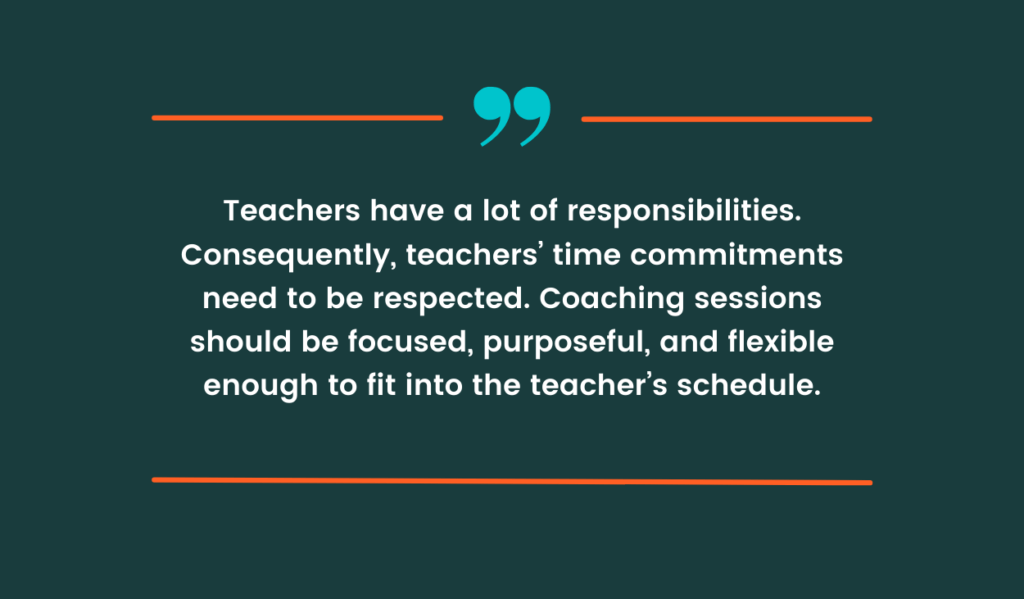Instructional coaching is a professional development approach that involves one-on-one or small-group support for teachers. It is designed to help teachers improve their instructional practices and enhance student learning. There are many benefits of instructional coaching, yet some teachers resist it. Let’s find out some reasons why that might be.
Fear of Judgment
One of the main reasons that teachers resist instructional coaching is the fear of being judged. Teaching is a deeply personal profession, and teachers may worry that coaching might expose their weaknesses or criticize their teaching style. Having their competence questioned can prevent teachers from opening up to the coaching process. To overcome this hurdle, it is essential to establish a safe and respectful coaching environment where teachers understand that the focus is on growth and improvement rather than evaluation.

Change Is Hard
Change can be scary. Some teachers may be opposed to anything that they see as changing their status quo. Many teachers spend years refining their instructional strategies. Therefore, the thought of changing their methods can be hard. It is important for coaches to be patient and understanding and to help teachers see that coaching can be a positive force for change.

Misunderstanding the Role of a Coach
If teachers do not have a clear understanding of what instructional coaching is or how the role works, they may be hesitant to participate. Therefore, it is important for coaches to take the time to explain the coaching process and to answer any questions that teachers may have. It is also important for coaches and administrators to clearly define the role of coaches to staff.

Lack of Trust
Building trust takes time. A teacher might resist coaching if they are unsure about the coach’s intentions or don’t trust them. Therefore, it’s vital that coaches build trust among teachers. Instructional coaches should encourage open and transparent communication. This will help with building positive relationships with teachers and help bridge any trust gaps.

Time Constraints
Teachers have a lot of responsibilities. They must plan lessons, grade, manage student behavior, attend meetings, and much more. Therefore, adding instructional coaching sessions can feel like just another time-consuming thing they have to do. This can be overwhelming for teachers. Consequently, to help ease this concern, teachers’ time commitments need to be respected. Coaching sessions should be focused, purposeful, and flexible enough to fit into the teacher’s schedule.

Past Negative Experiences
A teacher’s past experiences with instructional coaching can shape their willingness to participate. If they have had a negative experience before, they might be reluctant to go down that path again. It is important for coaches to be aware of this possibility and to work hard to build trust with the teacher. Ask teachers about their past experiences and reassure them of your shared goals.

Pride
Many teachers pride themselves on their expertise and years of experience. Some teachers may feel like they do not need coaching because they are already good teachers. This can be a challenge for coaches, who need to find ways to convince teachers that they can still learn and grow.

Instructional coaching provides many opportunities for teachers to grow professionally. Therefore, understanding the reasons behind their resistance is crucial for fostering a culture of collaboration. By addressing the resistance, instructional coaches can create an environment that promotes teachers’ acceptance. Remember, the objective is always to empower teachers and create a supportive space for continuous improvement and student success.

